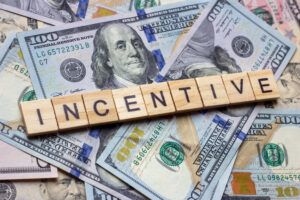Incentive Awards Update: Three Years After Johnson, Courts Decline to Follow the Eleventh Circuit
In 2020, the Eleventh Circuit broke ranks with decades of precedent from nearly every federal circuit by holding that incentive awards in class action litigation are violative of 19th century precedent from the United States Supreme Court. Although the Supreme Court denied a request to review the Eleventh Circuit’s ruling, recent decisions from the First and Second Circuits criticize the Eleventh Circuit’s ruling and indicate that there is little interest in doing away with incentive awards. As we enter the final quarter of 2023, we reflect on the state of the circuit split and the Supreme Court’s weigh-in (or lack thereof) on incentive awards.
Johnson in 2023
As we discussed in our previous update on incentive awards, Johnson v. NPAS Solutions, LLC, 975 F.3d 1244 (11th Cir. 2020) held that incentive awards are prohibited under two nineteenth-century Supreme Court cases—Trustees v. Greenough, 105 U.S. 527 (1882) and Central Railroad & Banking Co. v. Pettus, 113 U.S. 116 (1885). The Eleventh Circuit explained that “[a] plaintiff suing on behalf of a class can be reimbursed for attorneys’ fees and expenses incurred in carrying on the litigation, but he cannot be paid a salary or be reimbursed for his personal expenses.” The Court reasoned that incentive awards are “roughly analogous” to a salary, and therefore prohibited under Supreme Court precedent.
After the Eleventh Circuit’s ruling, the plaintiffs’ class representative, Charles Johnson, filed a petition for a writ of certiorari. In his petition, Johnson emphasized that district courts and courts of appeals in every circuit have affirmed settlements containing incentive awards, including the Eleventh Circuit itself in China Agritech, Inc. v. Resh, 584 U.S. ___, ___, 138 S. Ct. 1800, 1811 n.7 (2018). Johnson argued that the Eleventh Circuit’s holding leaves named plaintiffs “not-even-modest compensation for their efforts,” even though named plaintiffs are “willing to shoulder the burdens of litigation to recover” large settlements on behalf of the class. In addition to conflicting with rulings from “every other circuit,” Johnson argued that the Eleventh Circuit erroneously applied Greenough and Pettus to categorically bar all incentive awards rather than only excessive incentive awards. The Supreme Court denied Johnson’s petition—apparently not seeing Johnson as a problem.
The Second Circuit Repeatedly Examines, and Rejects, Johnson
While Johnson’s petition was pending, the Second Circuit affirmed an incentive award, rejecting Johnson’s reasoning. In Fikes Wholesale, Inc. v. HSBC Bank USA, N.A., 62 F.4th 704 (2d Cir. 2023), the Second Circuit affirmed the approval of a $5.6 billion revised class action settlement in the long-running Visa/Mastercard antitrust litigation. In that case, objectors to the settlement challenged the “service awards” to the named plaintiffs totaling $900,000, including two awards of $200,000 each. The objectors advanced four arguments against these service awards: (1) lead plaintiffs cannot adequately represent the class because the service awards dwarf the recovery for the lead plaintiffs and the average class member, (2) to avoid rewarding inefficiency, the district court should have limited its consideration to the average number of hours expended by the lead plaintiffs with the largest claims, (3) the service awards should have been directly lost salary and wages incurred in prosecuting the litigation, and the district court’s failure limit the service awards to those amounts amounted to an abuse of discretion, and (4) much of the work that the lead plaintiffs performed was geared toward obtaining legislative reform for the injunction class, and those efforts should have been excluded in arriving at a service award for the damages class.
Although the Second Circuit acknowledged the holding of Greenough, and the argument that Rule 23 postdates Greenough and makes no reference to service awards, the Court held that “practice and usage seem to have superseded Greenough (if that is possible).” Fikes Wholesale, 62 F.4th at 721. Instead, the Court explained that it was bound by its prior precedent in Melito v. Experian Marketing Solutions, Inc., 923 F.3d 85, 96 (2d Cir. 2019) and Hyland v. Navient Corporation, 48 F.4th 110, 123–24 (2d Cir. 2022). For this reason, the Second Circuit rejected the objectors’ first three arguments, but accepted the fourth, and directed the “district court to reduce the award to the extent its size was increased because of time spent lobbying.” Fikes Wholesale, 62 F.4th at 723.
Following Fikes, the Second Circuit affirmed another incentive award in Moses v. New York Times Company, 79 F.4th 235, 253 (2d Cir. 2023). Moses involved a class action asserted against the New York Times alleging that the publisher automatically renewed subscriptions without providing disclosures and authorizations required by California’s Automatic Renewal Law (the “ARL”). After an extensive mediation, the New York Times agreed to implement business reforms to comply with the ARL, including revising the presentation of its automatic renewal terms and providing consumers who enroll in an automatically renewing subscription with an acknowledgment. Class members agreed to release their claims against the Times in exchange for those business reforms and either (1) a pro rata cash payment from a non-reversionary Settlement Fund of $1.65 million or (2) Access Codes for one-month subscriptions to certain Times publications.
Serial objector, and counsel for the objector in Johnson, Eric Alan Isaacson objected to a $5,000 incentive award to Maribel Moses, the named plaintiff. In support of his objection, Isaacson argued that Greenough and Pettus prohibited incentive awards because they create a conflict of interest between the named plaintiff and the class members. The Second Circuit rejected Isaacson’s argument. In so holding, the Court explained that “an overwhelming majority of our sister circuits have concluded that district courts are permitted to grant incentive awards.” Moses, 79 F.4th at 253 (citing In re Apple Inc. Device Performance Litig., 50 F.4th 769, 785–86 (9th Cir. 2022); Jones v. Singing River Health Servs. Found., 865 F.3d 285 (5th Cir. 2017); Caligiuri v. Symantec Corp., 855 F.3d 860, 867 (8th Cir. 2017); Pelzer v. Vassalle, 655 F. App’x 352, 361 (6th Cir. 2016); Tennille v. W. Union Co., 785 F.3d 422, 434–35 (10th Cir. 2015); Berry v. Schulman, 807 F.3d 600, 613–14 (4th Cir. 2015); Cobell v. Salazar, 679 F.3d 909, 922–23 (D.C. Cir. 2012); Sullivan v. DB Invs., Inc., 667 F.3d 273, 333 n.65 (3d Cir. 2011) (en banc); In re Synthroid Mktg. Litig., 264 F.3d 712, 722 (7th Cir. 2001)). The Court further stated that it was “[o]nly recently [that] the Eleventh Circuit depart[ed] from this previously universally accepted consensus to create a circuit split . . . .” Id. at 79 F.4th at 253–54.
Isaacson argued that the Second Circuit should adopt the Eleventh Circuit’s holding in Johnson. The Second Circuit, however, determined that Greenough and Pettus “have been superseded, not merely by practice and usage, but by Rule 23, which creates a much broader and more muscular class action device than the common law predecessor that spawned the nineteenth-century precedents.” Id. at 254. In fact, the Court reasoned that the Supreme Court “appears to have left Greenough and Pettus in the rear view.” Id. (citing China Agritech, Inc. v. Resh, ___ U.S. ___, 138 S. Ct. 1800 (2018) (affirming a class representative’s $25,000 incentive award)). The Court also highlighted that, despite the long history of incentive awards, neither Congress nor the Advisory Committee on Federal Rules of Civil Procedure have suggested (yet alone imposed) a blanket prohibition on incentive awards.
The First Circuit, too, Dismisses Johnson
The First Circuit also declined to follow the Eleventh Circuit’s holding in Johnson. In Murray v. Grocery Delivery E-Services USA Inc., 55 F.4th 340, 351 (1st Cir. 2022), the District of Massachusetts preliminarily approved a settlement of $14 million, and three individuals filed an objection. One objector, Sarah McDonald, challenged incentive awards ranging from $2,000 to $10,000 to the named plaintiffs.
Rejecting McDonald’s argument, the First Circuit explained that the Supreme Court “did hold, well before the advent of Rule 23, that a court cannot allow a ‘creditor, suing on behalf of himself and other creditors’ to recover ‘personal services and private expenses’ out of a common fund.” Id. at 352 (quoting Greenough, 105 U.S. at 537). Although “[t]he Eleventh Circuit (in somewhat of an about-face) did recently bite on the Greenough argument,” the First Circuit did not find “the situations sufficiently analogous.” Id.
Greenough, the First Circuit explained, was concerned with “a creditor’s relationship vis-à-vis the trustees, not the other creditors.” Id. at 353. Put differently, the Supreme Court was concerned that such awards “would induce creditors to interfere with the management of funds that had already been entrusted to trustees charged with fiduciary duties to act in the best interests of the creditors.” Id. However, the First Circuit indicated “Rule 23(e) ensures that incentive payments will not result in unfair settlements by requiring that any settlement be ‘fair, reasonable, and adequate,’ taking into account whether ‘the class representatives . . . have adequately represented the class’ and whether ‘the proposal treats class members equitably relative to each other.’” Id. (quoting Fed. R. Civ. P. 23(e)(2)). In addition, the First Circuit explained that Rule 23 class actions require named plaintiffs to bear the brunt of litigation, possibly guaranteeing a net loss, which is why incentive payments are important: they “remove an impediment to bringing meritorious class actions and fit snugly into the requirement of Rule 23(e)(2) that the settlement ‘treats class members equitably relative to each other.’” For these reasons, the First Circuit rejected the Eleventh Circuit’s holding in Johnson.
Conclusion
Although the Supreme Court denied Charles Johnson’s request to reverse the Eleventh Circuit, the Eleventh Circuit’s holding appears to be an anomaly—the justification for which other circuits have little interest in entertaining. To the extent the Fikes, Moses, and Murray cases are any indication, it does not seem likely that other federal circuits will find the reasoning articulated in Johnson particularly persuasive. Accordingly, named plaintiffs outside the Eleventh Circuit will likely continue requesting, and receiving, incentive awards.
**Ellis & Winters’s Best in Class Blog covers developments in class actions in courts across the United States, focusing on insights for class-action defense.**



